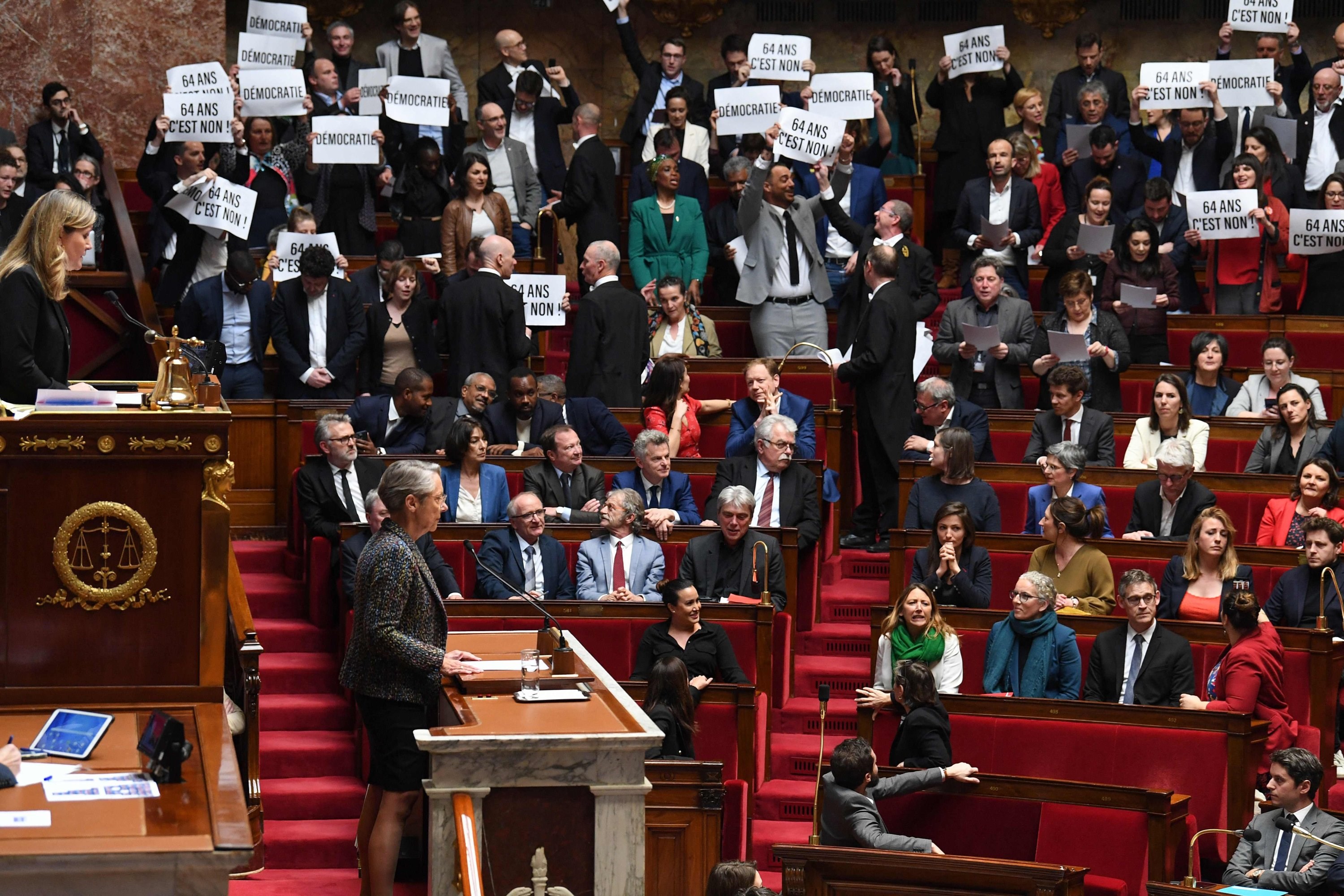French government escapes no-confidence votes by hair's breadth
Protesters flock to the streets of Paris after the failure of two no-confidence votes against the French government.
-

Members of parliament in France during PM Elizabeth Borne's speech to push the pension reform, Paris, March 16, 2023 (AFP)
The French government narrowly survived as the National Assembly lower house rejected, by just nine votes, a motion of two no-confidence votes by the centrist Liot coalition led by Charles de Courson and another by Marine Le Pen, prompting protesters to flock the streets of Paris to express disappointment.
France witnessed two no-confidence votes being handed to President Emmanuel Macron's government in parliament on Monday as de Courson, author of one of the votes and France's longest-serving MP, told France Inter radio that doing so was "the only way of stopping the social and political crisis in this country."
The reform was called "unfair" by de Courson who also referred to the government's handling of the process as "a denial of democracy." This is instigating fear of another period of violent anti-government protests, which comes only a few years after the "Yellow Vest" movement rattled France.
Paris and other parts of France have been witnessing mass protests and strikes in rejection of the Macron government's bill to raise the retirement age from 62 to 64.
City cleaning workers have been on strike for 10 days, causing the streets of Paris to accumulate over 7,600 tonnes of rubbish.
Last week, Macron twice turned down urgent calls by unions to meet with him in an attempt to get him to change his mind. The President's actions made unions "very angry", expressed Philippe Martinez, boss of the left CGT union.
Read more: CGT union warns of stopping oil refinery ops. as riots continue: FR
New elections would be 'suicidal'
On Sunday, the French President told AFP of his hope that "the text on pensions can go to the end of its democratic journey with respect for all". That same day, Macron's personal approval rating was shown to be at its lowest level in years at 28%.
The reason why there are opponents to Macron's bill is that they claim it serves as an unfair burden to those who earn lower than others as polls show two-thirds of the French public are against it.
Brice Teinturier, head of the polling firm Ipsos, said hosting new elections is not only unlikely but is considered "suicidal".
"When you're in this much of a cycle of unpopularity and rejection over a major reform, it's basically suicidal" to go to the polls," he told AFP.
French Prime Minister Elisabeth Borne stood her ground on Monday and called her reform a compromise, saying, "We never went so far in building a compromise as we did with this reform," insisting that Article 49.3 to bypass a vote was "profoundly democratic" under France's constitution. The article allows the government to pass a law without a vote in parliament.
"If you want to topple the government now is your chance," Borne said in her speech, pointing fingers at the opposition for "anti-parliamentary behaviour in all its facets."
Read next: Protests in Paris calls to stop sending arms to Ukraine, leave NATO

 3 Min Read
3 Min Read








